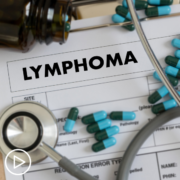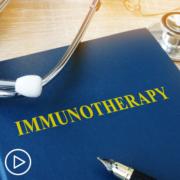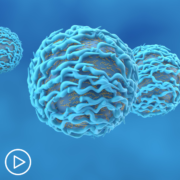Editor’s Note: This resource, Understanding Serum Protein Electrophoresis (SPEP) for Multiple Myeloma, was originally published by MyHealthTeam.
A variety of tests play a role in diagnosing multiple myeloma, including serum protein electrophoresis (SPEP). SPEP is a type of blood test, similar to one called immunofixation electrophoresis (IFE). It is used to measure and identify large amounts of monoclonal proteins (M proteins) in the blood. These are substances that can be indicative of illnesses such as multiple myeloma.
Understanding more about SPEP, including how it’s done, what to expect, and how to interpret the results, can help increase your understanding of a multiple myeloma diagnosis.
How Serum Protein Electrophoresis (SPEP) Works
SPEP is one of the tests typically used to identify the presence of multiple myeloma. Aside from M-protein detection, serum protein electrophoresis is used to check for immunoglobulins or antibodies. Immunoglobulins are responsible for the body’s defense systems. Some different types of immunoglobulins include immunoglobulin M (IgM), immunoglobulin G (IgG), and immunoglobulin A (IgA).
In some cases, the test is performed with urine, called a urine protein electrophoresis. A doctor may use this approach if they suspect that an immunoglobulin component called light chains is being lost in the urine. This type of protein is also called Bence-Jones protein.
“Blood serum” refers to the plasma portion of the blood without the blood’s clotting agents present. When a person’s blood is brought to the laboratory for analysis, it is separated into different components, including serum, and different kinds of tests can be run on each component.
SPEP measures levels of five protein types:
- Albumin
- Alpha-1 globulin
- Alpha-2 globulin
- Beta globulin
- Gamma globulin
Each protein moves at a different speed and clumps together under electric current to form specific patterns. As part of the test process, each component is separately examined and compared with amounts that are found in healthy individuals. Their patterns are also examined for any deviations.
An abnormal amount of protein in the blood serum can indicate a problem with protein production, which may be due to an underlying condition. After getting SPEP results, doctors usually order follow-up examinations to pinpoint the culprit behind the unusual protein levels in the body.
When Serum Protein Electrophoresis (SPEP) Is Used
SPEP is generally indicated if you have signs and symptoms that suggest the presence of conditions related to unusual protein levels in your body. Some of these signs and symptoms include the following:
- Carpal tunnel syndrome that doesn’t seem to improve
- Manifestations of high calcium levels, such as chronic episodes of constipation, fatigue, loss of appetite, nausea, headaches, and thirst
- Weakened bones, as evidenced by frequent episodes of fractures or bone pain
- Excessive bruising or bleeding
- Anemia (low red blood cell count)
- Certain lymphomas and leukemias that may be producing monoclonal protein
In some cases, specialists do not see these signs or symptoms right away. Instead, they may first notice a problem when laboratory results indicate high levels of protein in your blood cells or urine. In the case of hypercalcemia (high calcium levels), for instance, doctors may recommend that you undergo SPEP or IFE to help rule out potential causes.
How SPEP Is Conducted
Preparing for SPEP involves largely the same process as going in for other blood tests and laboratory testing. You may need to temporarily stop taking some medications, depending on your doctor’s advice. You won’t typically have to do anything further prior to your appointment.
During the test, the health professional will wrap a band (tourniquet) around your arm to stop the blood flow in the area. This causes veins to swell, making them easier to identify and puncture. This, in turn, will make it simpler for the person drawing your blood to insert the needle. The area will be cleaned and sanitized with an alcohol swab before needle insertion.
Once the health professional inserts the needle, they will extract the recommended amount of blood. They will then remove the needle and apply pressure to the extraction site with a small gauze pad to keep it from bleeding. Your next step is to wait for the results after the blood sample is processed by the laboratory.
Once your sample has been processed, a health care provider will look at the results. This will include the amount of each protein found in the assay as part of the diagnostic process. To make the process more accurate, they will consider the results alongside your other signs and symptoms.
Your health care provider will compare your levels to reference ranges, the typical blood concentrations of different substances. These are expressed in grams per deciliter (sometimes written as g/dL), but these ranges may vary slightly from lab to lab. For adults, the reference ranges are:
- Total protein — 6.3 to 7.9 grams per deciliter
- Albumin — 3.4 to 4.7 grams per deciliter
- Alpha-1 globulin — 0.1 to 0.3 grams per deciliter
- Alpha-2 globulin — 0.6 to 1 grams per deciliter
- Beta globulin — 0.7 to 1.2 grams per deciliter
- Gamma globulin — 0.6 to 1.6 grams per deciliter
The reference values for the total protein tests have yet to be established for children younger than 12 months of age.
What SPEP Can Tell Doctors
It is important to remember that the results of SPEP are not definitive on their own. Your doctors will take a number of different factors into account alongside your results when providing you with a diagnosis.
A decrease in total serum protein may indicate one of the following conditions:
- Malnutrition
- Kidney disease
- Nephrotic syndrome
- Liver disease
- Cirrhosis (scarring of the liver)
- Inability of the digestive system to absorb and process protein
An increase in alpha-1 globulin may be indicative of inflammatory disease or cancer.
Higher than normal alpha-2 globulin may mean acute or chronic inflammation.
An increase in beta fraction globulin and its components (C3, transferrin, and beta-lipoprotein) may be due to hormonal medications or the body’s inability to break down fats.
A decrease in beta globulin may translate to malnutrition or low levels of cholesterol.
An increase in gamma globulin protein may indicate:
- Blood cancers such as multiple myeloma
- Liver disease
- Presence of an infection
- Inflammatory disease
Your medical history, such as recent vaccinations or the medications you take, may affect the results of laboratory tests. Therefore, your oncology team will check your medical history and all the drugs that you currently take to better interpret the results of your SPEP.
How SPEP Results Are Used
The immunofixation results themselves cannot specifically indicate the underlying problem. Depending on the type of protein that you have in your blood at unusual levels, your oncology team may recommend another series of laboratory tests to rule out other conditions.
Following SPEP testing, your health care team may order more assays or proceed to other examinations, such as a bone marrow biopsy or more blood tests for additional information about your diagnosis.
Meet Your Team
Going through a series of tests can be overwhelming, but having a strong support system can make a world of difference. MyMyelomaTeam provides a safe space where you can discuss experiences, offer advice, and interact with others who understand life with multiple myeloma. This growing community is already more than 16,000 people strong.
Have you undergone SPEP during the diagnostic process? What was it like? Share your thoughts and advice in the comments below, or start a conversation by posting on MyMyelomaTeam.









